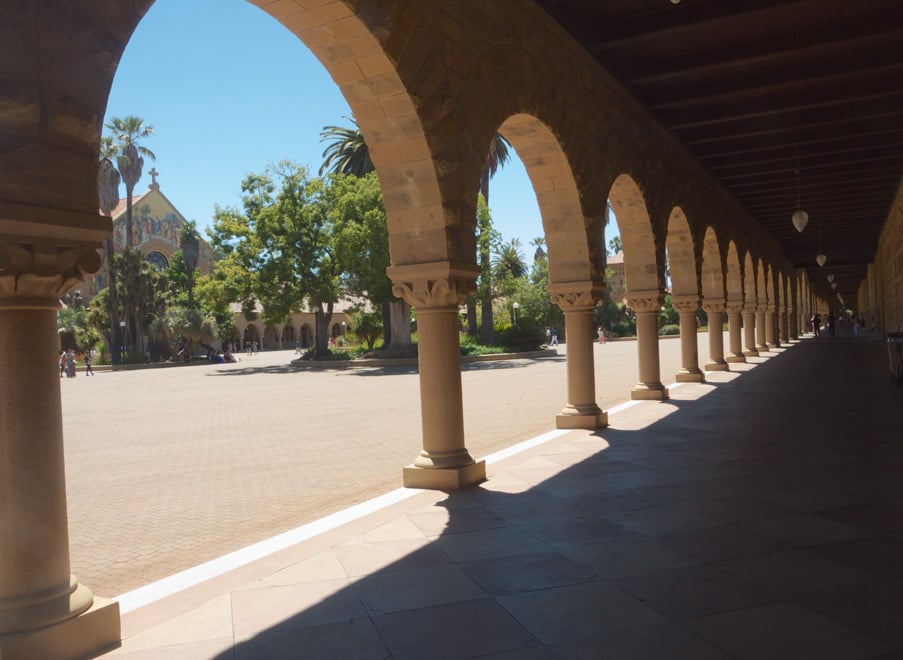Stanford revised the sexual violence reporting policy found in the Campus Compact on Sept. 10 to offer amnesty for all survivors of and witnesses to sexual violence, following criticisms of the original policy by survivors and campus advocates.
The University’s original policy, released on Sept. 9, wrote that it would not guarantee amnesty to students who reported sexual assault at “a party/gathering of multiple individuals” of which they were the host and at which they were “encouraging wide scale violation of social distancing protocols.” Title IX advocates contended that the policy would discourage survivors of sexual violence from reporting perpetrators.
According to campus survivor advocates Julia Paris ’21, Maia Brockbank ’21 and Krithika Iyer ’21, calls for Stanford to revise the policy and offer amnesty to all survivors began at the end of July. Brockbank said they had been meeting with higher administration to assist in the establishment of COVID-related sexual violence reporting policies as part of the Associated Students of Stanford University (ASSU). University spokesperson E.J. Miranda declined to confirm the meetings.
Brockbank stated that they had raised the University’s decision not to grant amnesty to Senior Associate Vice Provost for Institutional Equity and Access Lauren Schoenthaler on multiple occasions, citing Brown University’s sexual violence reporting policy as one for Stanford to emulate.
Although campus Title IX had been working with University administration on reporting policies for weeks, law professor Michele Dauber said she only became aware of these policies when they were released on the Campus Compact website.
“I got texts immediately, in the middle of the night, from students asking me if there was anything I could do to help them,” Dauber said. “At seven in the morning [on Wednesday], I sent Provost Drell an email begging her, ‘Please, please, please do not do this. This is going to hurt reporting.’”
In her email to Provost Persis Drell, Dauber wrote, “It is well known from past experience with disciplining rape victims who came forward for various infractions (e.g. alcohol) that the sole effect of this kind of punitive action will stop victims from reporting being assaulted, harassed, or beaten. It will not stop anyone from breaking rules, and it will not stop rapes and attacks.”
Later that day, Dauber learned of the Reverse Town Hall and was informed that the sexual violence reporting policy would be addressed at the presentation. There, Dauber questioned Vice Provost Susie Brubaker-Cole and interim Title IX coordinator Catherine Glaze about the policy, arguing that a lack of amnesty for all survivors would chill reports of sexual violence.
“It was a wrong-headed, dangerous, regressive policy that literally no one would defend,” said Dauber.
After the Reverse Town Hall, according to Dauber, Drell responded to her email, stating that she agreed that the policy was flawed and would be rescinded. Dauber asked to be involved in the redrafting of the language in the sexual violence reporting policy, which Drell agreed to.
While Miranda declined to confirm the specifics of the exchange between the two, he wrote, “The provost communicated with Prof. Dauber regarding the amnesty clause in the Campus Compact. The email exchange was productive and the amnesty policy was changed the next day.”
Now, according to the Campus Compact website, Stanford will not impose COVID-19 health and safety violation consequences on survivors or witnesses who report sexual violence.
In a statement clarifying the new policy, Miranda wrote, “Institutional Equity & Access partnered with VPSA [Vice Provost for Student Affairs] to provide amnesty for sexual violence reports for victims and witnesses, and Ms. Schoenthaler has been supportive of that outcome.”
Campus survivor advocates, however, have cautioned that the issue is not yet entirely resolved. Brockbank said, “The language is one thing and the enforcement is another,” adding that there could still be a chilling effect on reports of sexual violence if the revised policy is not publicized sufficiently to the student body. Paris agreed, stating that despite working with administration to create reporting policies, she was not informed by Stanford that the language contained within the Campus Compact had been changed.
Survivor advocates agree that moving forward, in order to support survivors of sexual violence throughout the pandemic and beyond, Stanford should be more responsive to the voices of survivors and advocates.
Comparative literature professor David Palumbo-Liu wrote that given the unprecedented circumstances across the country, the University should be open to listening to the stories of sexual violence survivors.
“We need even more to attend to mutual support and to holding our now-fragile community together,” Palumbo-Liu said.
Contact Kathryn Zheng at kszheng ‘at’ stanford.edu.
